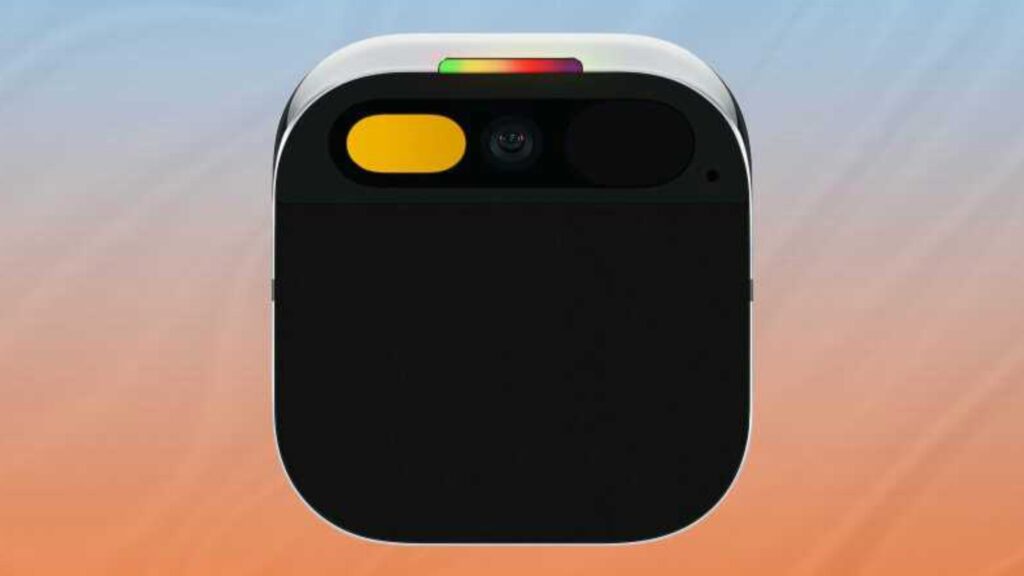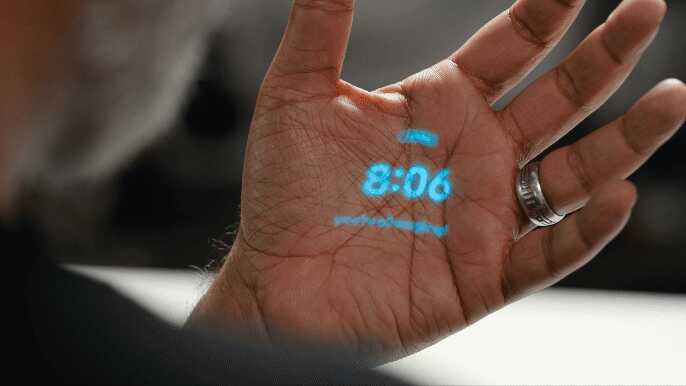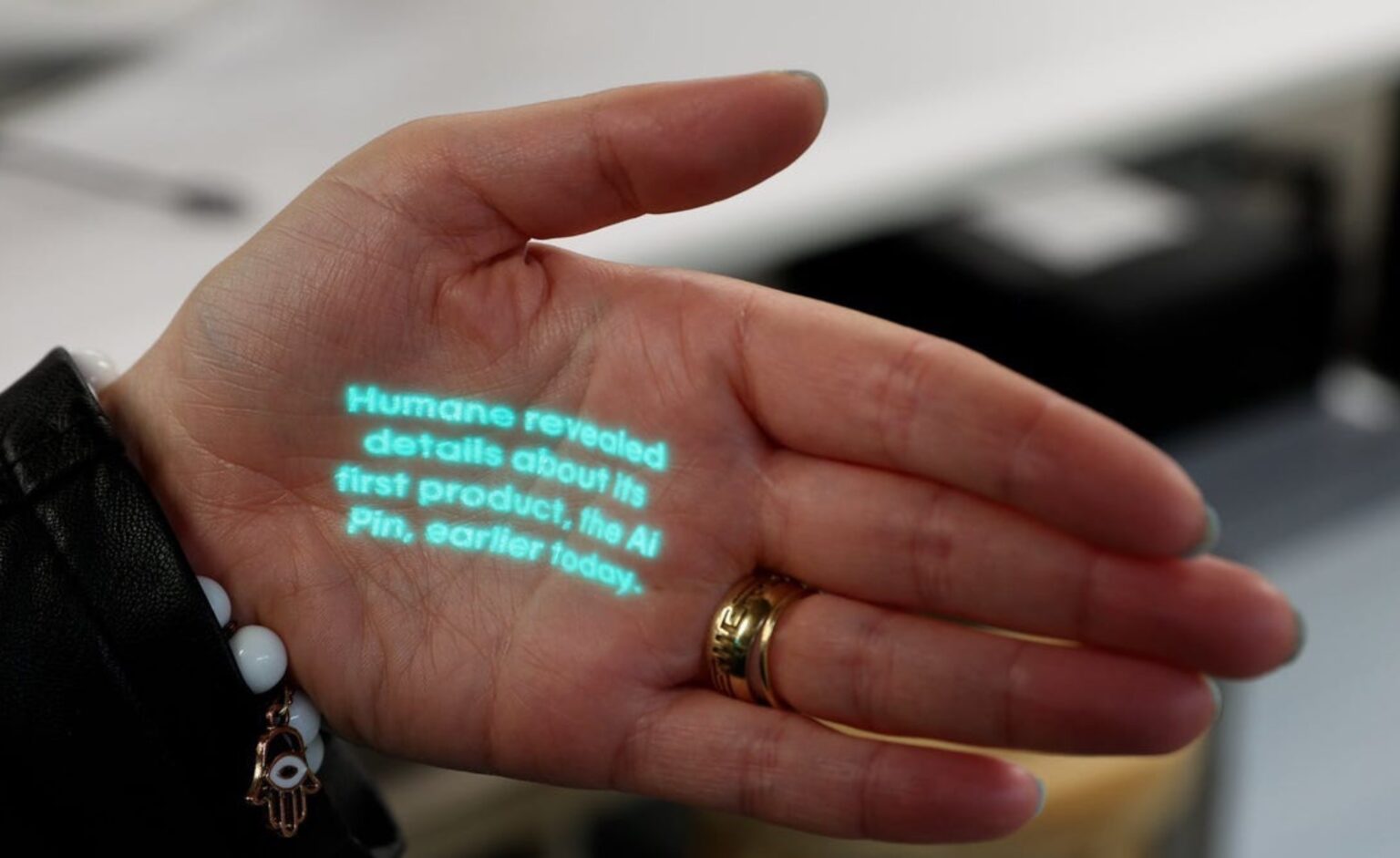The idea of the Ai Pin, a wearable device built to work as a phone (or even better) without a screen, seemed great when it was first announced by the U.S. startup Humane in November. But that is not the reality. A review of the device by The Verge found that the Pin did not work well, was slow and unreliable.
David Pierce, the media outlet’s editor at large who reviewed the gadget after two weeks of testing, concludes that Humane’s “Ai Pin is an interesting idea that is so thoroughly unfinished and so totally broken in so many inacceptable ways.”
He said the device, which started shipping last week, is not value for money and that he wouldn’t recommend anyone to spend the $699 it costs to buy the Pin, plus the $24 monthly subscription.
Also read: Humane Ai Pin Made Factual Errors at the Launch Demo
Ai Pin: What went wrong?
The Ai Pin is a small, lightweight device that can you can wear. It doesn’t have a screen and is controlled via voice and touch. The device, powered by a combination of Humane’s own software and OpenAI’s GPT-4 technology, attaches magnetically to clothing and does not need to be paired with a smartphone.
With a built-in speaker, the Pin uses AI to sense and respond to the environment around it, helping it to answer user questions, make phone calls, and send texts. The gadget has a small projector that can be used to project images and text onto the hands of a user.

Humane touts the Ai Pin as the beginning of the post-smartphone era, where people spend less time on their phones but in the real world. The device is supposedly designed to help users make this transition. But the Verge’s reviewer had a different experience.
While Pierce was impressed by the Ai Pin’s smaller and solid build, which “looks and feels much better than your average first-gen hardware product,” he also finds the unit “just incredibly unsubtle.” Pierce wore the device on his chest.
“When you stand in front of a building, tapping your chest and nattering away to yourself, people will notice. And everything gets in the way, too,” he noted. “My backpack straps rubbed against it, and my messenger bag went right over it. Both my son and my dog have accidentally set the AI Pin off while climbing on top of me.”
A user will need to tap the Pin, hold and shout their question into the air, and release. Ai Pin will purportedly find the answer by browsing the web or grabbing knowledge from all over the Internet.
The main idea behind the Ai Pin is to use a cellular connection and AI models to answer queries and complete tasks. But Pierce said the Pin failed to do little things that Amazon’s Alexa or Apple’s Siri did a decade ago, like setting a timer for 10 minutes or an alarm.
“It can’t add things to your calendar, either, or tell you what’s already there,” he detailed. “You can create notes and lists – which appear in the Humane Center web app […] – but if you try to add something to the list later, it’ll almost always fail for some reason.”
This is the Humane Ai Pin https://t.co/ytUSGF3y55 pic.twitter.com/Zrcoaf49u7
— Humane (@Humane) November 9, 2023
Ai pin ‘can only tell time’
According to Humane, the Ai Pin is meant to help people improve their productivity, using hands-free voice commands to make calls, send texts, or access information from the internet. For Pierce, the experience was nothing short of horrible.
He reports that the Pin, which uses Humane’s proprietary Cosmos operating system, was functionally poor, unreliable, and did not understand commands. For example, simple tasks like making a call took several attempts, and often getting the wrong results.
“Every time the Ai Pin tries to do seemingly anything, it has to process your query through Humane’s servers, which is at best quite slow and at worst a total failure,” Pierce said, pointing to how this undermines its goal of providing a seamless experience.
He asked the Pin to write down the library book “sale is next week,” but was frustrated he had to “wait 10 seconds while it processes, processes, and then throws a generic ‘couldn’t add that’ error’ message.”
The device also failed to make calls 50% of the time Pierce tried to call someone.”Half the time someone called me, the Ai Pin would kick it straight to voicemail without even ringing,” he said, adding:
“After many days of testing, the one and only thing I can truly rely on the AI Pin to do is tell me the time.”
Pierce’s review shows that the Ai Pin falls short of its promises in many ways. Apart from failing to make calls or access apps on the phone, the battery is prone to overheating within a few minutes of use. Humane cofounder Bethany Bongiorno says the warmth can come from a bad signal or overuse. Pierce got notified that the Pin has overheated and needs to cool down a lot during testing.
“The battery life is similarly rough,” he complained. “At one point, the Ai Pin and a booster went from fully charged to completely dead in five hours, all while sitting untouched in my backpack.”
The interface is ‘bananas’
The Ai Pin comes with two battery boosters, a charging case, and a desk charger. Pierce went through both boosters and a smaller internal battery within just a few hours of heavy testing.
“On my lightest days of testing – which typically consisted of a couple of calls, a few texts, a half-dozen queries – I didn’t have many overheating issues, though the battery did still die well before the day ended,” he said. ”
“As long as you don’t use the projector too much, the Ai Pin can muddle through,” he adds. The Pin does have a small projector that can be used to project images and text onto surfaces like sides of a building, even the hands of a user, for those keen on visuals.
The projector is also used to access settings as well as unlock the device, and more. Despite Humane’s promises, Pierce found that the projector can only work on the hand and not other surfaces. He struggled to find the right spot for his hand for the Ai Pin to project text correctly, and described its 720p resolution as “crap.”
“The projector’s user interface is – how can I put this nicely? – bananas,” Pierce noted.
He said he went through a lot of”gymnastics” with his hand just to try and interact with the Ai Pin’s projector, which only projects a green light that becomes invisible when you’re in bright light. He added that there were “too many interaction systems to memorize, especially when none of them work very well.”
While the Ai Pin was sometimes able to query the AI models it works with for a review of places like a restaurant by capturing a photo of the place using its camera, it struggled with translating other languages such as Japanese or Korean. Translation is one of the device’s key selling points, and supposedly how it automatically discerns which languages to translate.

‘Wishing on a star’
The Pin also failed to provide accurate information on the weather, and even though it connects with music streaming platform Tidal, Pierce said “connection is as broken as anything else on the Ai Pin.” The gadget failed to play songs from Beyoncé’s new country album when asked to do so.
“In general, I would say that for every successful interaction with the Ai Pin, I’ve had three or four unsuccessful ones,” Pierce stated, adding that the unit “doesn’t work. I don’t know how else to say it.”
“Using the Ai Pin feels like wishing on a star: you just close your eyes and hope for the best. Most of the time, nothing happens,” he says.
It does not come as a huge surprise that the Ai Pin is struggling to impress with real world application. The device produced some glaring factual errors during the launch demonstration on Twitter in November.
Cofounder Imran Chaudhri (Bongiorno’s husband) demonstrated how the Ai Pin can be used to answer queries, saying, “When is the next eclipse, and where is the best place to see it?”
In response, the computer said, “The next total solar eclipse will occur on April 8, 2024. The best places to see it are Exmouth, Australia, and East Timor.”
This was not true. According to the U.S. space agency NASA, the 2024 total solar eclipse could be seen only in the United States, Canada, and Mexico, as it turned out. The event was even been dubbed “the Great North American Eclipse.”
The Humane cofounders told The Verge that the Ai Pin’s problems, as reviewed by David Pierce, will be eliminated and the device will become “smarter and more powerful over time.” They promised to make improvements to the Ai Pin’s Cosmos OS, new features and software refinements.









 and then
and then